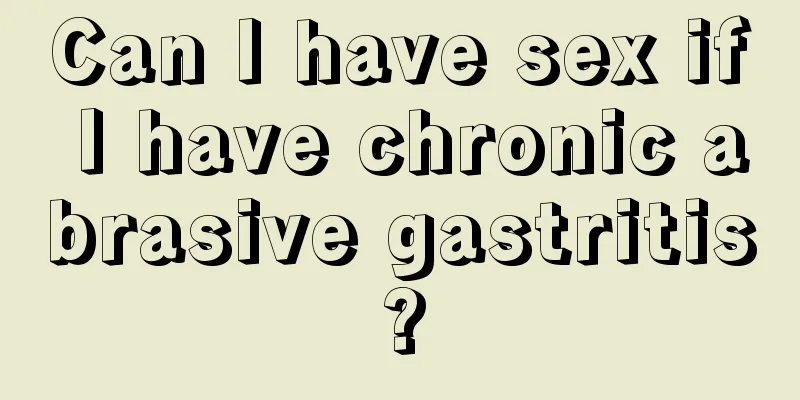I feel hungry, dizzy, and weak in my hands and feet

|
Every time people are hungry, they will feel dizzy and their hands and feet will feel weak. This is a serious condition, so they need to consume relevant foods. Otherwise, their symptoms will become more and more serious, eventually causing hypoglycemia or other serious complications, which will complicate the situation. 1. Nervous system diseases Such as cerebral ischemic lesions, cerebellar lesions, brain lesions, brain trauma, certain types of epilepsy, etc. In addition, patients with autonomic dysfunction and certain neuroses also often feel dizzy. 2. Ear diseases For example, ear diseases may affect balance and cause dizziness. 3. Internal medicine diseases Such as hypertension, hypotension, various cardiovascular and cerebrovascular diseases, anemia, infection, poisoning, hypoglycemia, etc. 4. Cold Sometimes a cold may cause dizziness. 5. Cervical vertebrae degeneration The main cause of dizziness is the growth, deformation, and degeneration of the cervical vertebrae caused by long-term poor posture or sleeping position, tightening of the neck muscles, and obstruction of arterial blood supply, resulting in insufficient blood supply to the brain. The patient often experiences tightness in the neck, limited flexibility, occasional pain, numbness and coldness of the scalp and fingers, shoulder pain, a feeling of heaviness, and even nausea and palpitations. 6. Anemia If dizziness is accompanied by fatigue and pale complexion, the possibility of anemia should be considered. Patients with indigestion, peptic ulcer, gastrointestinal bleeding and chronic inflammatory diseases may all develop anemia. 7. High blood viscosity Hyperlipidemia, thrombocythemia and other conditions can increase blood viscosity and slow blood flow, resulting in insufficient blood supply to the brain, and easily leading to symptoms such as fatigue, dizziness, and weakness. Currently, the incidence of this type of disease is on the rise. 8. Cerebral arteriosclerosis The patient feels dizzy and often suffers from insomnia, tinnitus, emotional instability, forgetfulness, and numbness in the limbs. Cerebral arteriosclerosis reduces the inner diameter of cerebral blood vessels, reduces blood flow in the brain, causes insufficient blood and oxygen supply to the brain, and causes dizziness. The clinical characteristics are three major symptoms: dizziness, sleep disorders, and memory loss, as well as occipital headache, mild paresis, speech disorders, and irritability. The disease generally develops slowly. The characteristic of this type of dizziness is that it is easy to occur or worsen when the body position changes. 9. Heart disease, coronary heart disease In the early stages of the disease, symptoms are still mild. Some people may not experience obvious discomfort such as chest tightness, palpitations, shortness of breath, etc. They may only feel headache, dizziness, weakness in the limbs, difficulty concentrating, tinnitus, or forgetfulness. Heart diseases such as cardiac arrest, paroxysmal tachycardia, paroxysmal atrial fibrillation, ventricular fibrillation, etc. can lead to acute cerebral ischemia, with symptoms such as dizziness, blurred vision, stomach discomfort, and syncope. 10. Drug poisoning Poisoning by streptomycin, neomycin, kanamycin, gentamicin, etc. is the most common. In addition to dizziness, patients also suffer from vertigo and sensorineural hearing loss caused by cochlear nerve damage. Chronic lead poisoning often manifests as neurasthenia syndrome, with dizziness, headache, insomnia, forgetfulness, fatigue, and nightmares as the main symptoms, as well as hypothermia and loss of appetite. 11. Functional hypoglycemia It can also cause dizziness, palpitations, weakness, tremors when on an empty stomach or when exerting force, sometimes convulsions, loss of consciousness, etc. When you are emotionally stressed or hyperventilating, respiratory alkali poisoning may occur due to increased carbon dioxide excretion, brain cell hypoxia, causing dizziness and fatigue. The patient may also feel numbness and coldness in the face, hands and feet, and occasionally a sense of trance. |
<<: The mooncake skin is very soft after baking
>>: How to make eyes bright and energetic
Recommend
Which part of the finger hurts when it is opened
Dysfunction of the fingers is the phenomenon when...
What kind of exercise is effective for pancreatic cancer
Pancreatic cancer is a highly malignant tumor. Du...
Which Chinese medicine hospital is good for advanced cervical cancer
Cervical cancer is a common and frequently occurr...
Can a ruptured cerebral blood vessel be cured?
Most people don't pay much attention to cereb...
Is chest tumor serious?
The chest is a very important part of the female ...
What should I do if I have cracked soles of my feet?
Friends with cracked soles should soak their feet...
What should I do if my calf is swollen after being bumped?
In daily life, bumps and bruises are inevitable, ...
How long is the breastfeeding period for a child?
The question of how long to breastfeed a baby has...
Eat well after esophageal cancer surgery
A few months ago, Aunt Wang developed difficulty ...
Is right back pain an early symptom of lung cancer? There is a certain possibility
Whether right back pain is an early symptom of lu...
If you want to stay away from brain cancer, you must always be on guard against its causes
In recent years, many people have been entangled ...
How to treat bad complexion
The complexion and complexion can largely reflect...
Does a slight overbite need to be corrected?
Patients with mild overbite can return to normal ...
How is acute pyelonephritis treated?
Acute pyelonephritis is a disease with a relative...
What are the specific preventive measures for cervical cancer
There are many diseases in the cervix, such as ce...









